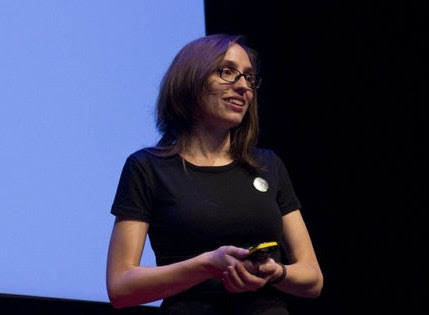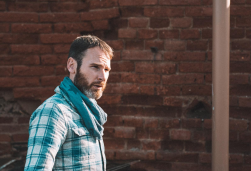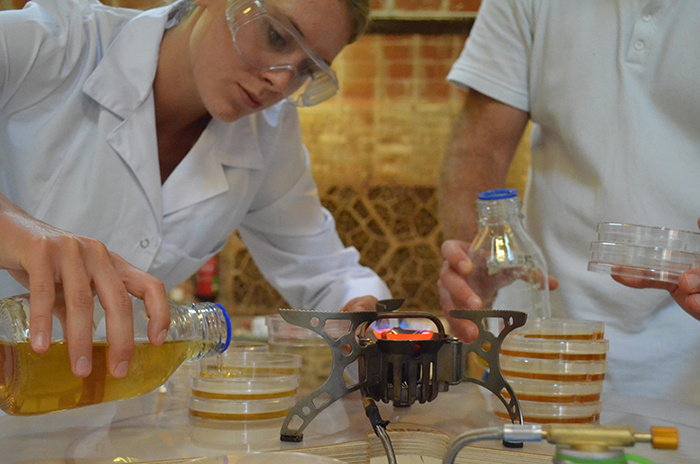Syllabus⇝
The recent growth of the international DIY-Bio / I-GEM and Bio Hackers networks are born of a motivation to narrow the golf between research conducted in institutional and corporate settings and to redirect the scientific locus back towards citizen scientists. The agenda of democratising access to the sciences is shared with that of libre software and open source electronics and maker movements. Access to the means experimentation for the investigative and applied sciences will not only change the way we understand and describe the world but also bring forth new knowledge, designs and engineering practises previously constrained to larger scale operations.
Through the course, researchers will learn how to identify microorganisms, how to take samples and prepare cultivation medias, how to observe microscopic organisms and to obtain amplify DNA and analyse it. Researchers will be introduced to scientific concepts such as sterility, metabolism, genome, synthetic biology, biochemistry and microbiology. Gaining the ability to make creative decisions and construct logical frameworks for study and production in the field of biology.
Deliverables⇝
1- Students will design and hand-in their own notebooks in an innovative research fashion
2- A designed experiment following scientific methods will also be delivered
Deliverables⇝
Additional Resources⇝
Faculty⇝

Nuria is a post-doctoral researcher at Complex Systems Laboratory at Universitat Pompeu Fabra (UPF) in the PRBB. She holds a major in Biology and a engineering in informatics and performed her research thesis about Biocomputation, that it is at the interface of both fields. Nuria teaches biology for architects, artist and designers of IAAC, Elisava or Massana universities and is a founder member of the DIYBioBcn, the first biohacking group of Spain.

Jonathan Minchin studied Fine Arts and Design Craftsmanship and digital Fabrication. He attained BA in Architecture and a masters degree MSC in ‘International Cooperation, Sustainable Emergency Architecture’ in 2010. He is coordinator of the EU funded research project called ROMI (Robotics for Microfarms) and has spoken at the European Commission and British Parliament.
In this field he has worked on housing and development projects alongside ‘Habitat for Humanity’ in Costa Rica, ‘UNESCO’ in Cuba and with ‘Basic Initiative’ in Tunisia.
He has worked in conjunction with ‘UN-Habitat’ in Barcelona and holds a particular interest in appropriate technology, bioregional industries and agroecology. His professional career has focused on architectural and urban development projects with Architects Offices in both England and Spain and his writing on “Geographic referencing for Technology Transfer” was published in the book “Reflections on Development and Cooperation” in 2011. He took part in the Fab Academy, Bio Academy and Coordinated the Green Fab Lab and Valldaura campus between 2012 and 2017.
Jonathan has also worked on the on the DIYBio Barcelona project.
